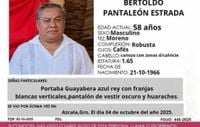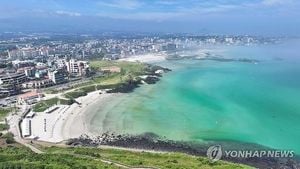The discovery of Rev. Bertoldo Pantaleón Estrada’s body on a remote dirt road in Guerrero, Mexico, has sent shockwaves through the Catholic community and reignited concerns about the dangers facing religious leaders in the country’s most violence-plagued regions. Estrada, a 58-year-old priest who served as pastor at San Cristobal church in Mezcala, was reported missing on Saturday, October 4, 2025. By Monday, authorities had confirmed the worst: Estrada had been found dead, his body bearing multiple gunshot wounds inside his vehicle, according to statements from the state prosecutor’s office and reports by The Associated Press.
The grim discovery unfolded in Guerrero, a southern Mexican state notorious for cartel activity and high levels of violence. The same region made international headlines more than a decade ago when 43 teaching students vanished in a crime that remains unsolved. More recently, in 2024, a retired bishop who had attempted to mediate between warring cartels was kidnapped in the area, highlighting the perils that face those who step into the crosshairs of organized crime, especially when advocating for peace or justice.
Estrada’s disappearance was first reported by the Diocese of Chilpancingo-Chilapa, the ecclesiastical jurisdiction to which he belonged. After his body was found, the San Cristobal church confirmed his identity and issued a statement thanking everyone who had assisted in the search. The state prosecutor’s office, which identified the deceased only as “Bertoldo N,” immediately launched a homicide investigation. Preliminary police reports, cited by Diario de Mexico, revealed that Estrada’s body was discovered in his car on a dirt road connecting El Platanal to Mezcala, near the Chilpancingo-Iguala highway—a stretch of road that has seen its share of violence in recent years.
For many in Mexico, the murder of a priest is more than just another statistic; it’s a jarring reminder of the risks faced by those who serve as community leaders and moral compasses in regions wracked by criminal conflict. Nearly 80% of Mexico’s population identified as Roman Catholic in 2020, according to data from the Central Intelligence Agency. In such a deeply religious country, attacks on clergy reverberate far beyond the church walls.
Yet, as the Associated Press and BBC have reported, priests and other religious figures are frequently targeted by criminal groups. Their roles often extend beyond spiritual guidance—they’re advocates for human rights, mediators in disputes, and sometimes the only voice for justice in communities where law enforcement is either absent or compromised. According to the Catholic Multimedia Center, which tracks violence against religious officials, ten priests were killed in Mexico between 2019 and 2024. During that same period, there were 900 reported cases of extortion and death threats against Catholic officials, as well as other forms of aggression.
The dangers are not limited to one-off attacks. In October 2024, Rev. Marcelo Pérez, a well-known activist priest from Chiapas, was murdered after celebrating Mass. Witnesses recounted how two men approached the church on a motorcycle before opening fire—a chilling scene that underscores the vulnerability of clergy who dare to speak out or simply serve in high-risk areas. The BBC noted that Pérez was allegedly killed by a local drug dealer, a fate that has befallen too many priests who stand up to criminal interests.
In the wake of Estrada’s murder, the Jesuits of Mexico issued a statement mourning his death and demanding more information about the circumstances. Their call for transparency and justice echoed the sentiments of many within the church and beyond, who see the targeting of priests as symptomatic of the broader lawlessness gripping parts of the country. "We demand a thorough investigation and clear answers for the Catholic community and all those affected by this violence," the Jesuits stated.
Guerrero, where Estrada lived and worked, has long been a hotspot for cartel violence. Multiple criminal groups vie for control over lucrative drug trafficking routes, extortion rackets, and territory. The resulting turf wars have left ordinary residents—and those who serve them—caught in the crossfire. The region’s notoriety was cemented by the 2014 disappearance of 43 students from Ayotzinapa, a case that remains unresolved and emblematic of the impunity that often shields perpetrators in Mexico’s justice system.
In this climate, priests like Estrada often find themselves in an impossible position. On one hand, they’re called to minister to their flocks, provide comfort, and advocate for peace. On the other, their efforts can draw the ire of powerful criminal organizations who see any challenge to their authority as a threat. As the AP highlighted, the killing of priests in a predominantly Catholic country is a stark illustration of the ruthlessness of Mexico’s ongoing violence—where even sacred spaces and holy men are not immune.
Authorities have not yet identified any suspects or established a clear motive in Estrada’s killing. Investigators are combing through evidence collected at the crime scene, hoping to piece together what happened in the hours leading up to his death. The prosecutor’s office has pledged to pursue all leads, but past experience has shown that such cases are rarely straightforward. Fear, witness intimidation, and the pervasive influence of organized crime often make justice elusive.
The impact of Estrada’s murder has rippled through the Catholic community, both locally and nationally. Parishioners at San Cristobal church have expressed shock and grief, describing Estrada as a dedicated pastor who served his congregation faithfully. Church officials, meanwhile, have reiterated their calls for greater protection of religious leaders and for authorities to address the root causes of violence that have made Mexico one of the most dangerous countries in the world for clergy.
For many Mexicans, the tragedy is a painful reminder of the challenges facing those who seek to bring hope and stability to communities under siege. As the cycle of violence continues, the fate of priests like Bertoldo Pantaleón Estrada stands as both a cautionary tale and a call to action—demanding not just justice for the victims, but a renewed commitment to peace and accountability in places where both have been in short supply.
As investigators press on with their inquiries and the church mourns another fallen leader, the story of Estrada’s life and death underscores the enduring dangers—and the quiet courage—of those who serve on the front lines of Mexico’s struggle against violence.




